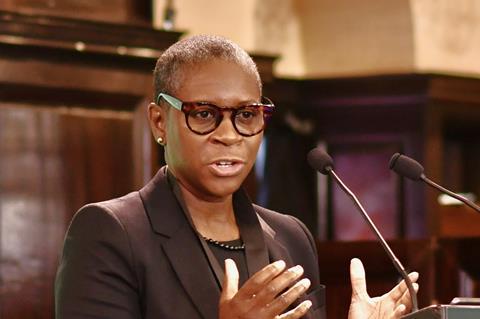With barristers preparing for ‘no returns’ and the Law Society withdrawing support for the government’s proposed reform package, what now for criminal legal aid?
If the government had any lingering hope that it could sell its criminal legal aid package to the profession, it was dashed this week when the Law Society announced it was withdrawing support for the proposed funding uplift.
Lord chancellor Dominic Raab claimed that the government’s response matched the central £135m recommendation of Sir Christopher Bellamy’s independent review. But, as the Gazette revealed a fortnight ago, analysis of the Ministry of Justice’s 104-page consultation document and 27-page impact assessment suggested the justice secretary was not even doing the bare minimum recommended to save the sector.
The Society initially offered a cautious welcome for the proposed 15% uplift pending detailed analysis. But this week, after crunching the numbers, Chancery Lane described the government’s claims as ‘spin’. In fact, concluded the Society, the real increase is 9%.
‘The government response sends a clear message that the Ministry of Justice is simply not serious about tackling [the] crisis,’ Society president I. Stephanie Boyce said. ‘While of course the proposed investment in police station and magistrates’ court work is much needed, the overall package is woefully short of the minimum identified as necessary to keep the network of criminal defence services functioning. It is no good part of the system being economically viable if the system as a whole is not.’

With the number of criminal legal aid firms dwindling and no duty solicitors under 35 in a growing number of counties, the crisis was ‘acute’.
Boyce said: ‘When considering whether to take up new criminal legal aid contracts, our members will need to think long and hard as to whether they believe there is now any prospect of a viable economic future in criminal legal aid. Sadly, unless the government changes tack, we no longer believe that there is.’
New one-year crime contracts begin in October, which the Legal Aid Agency can extend by another two. But should practitioners decide to quit, what then? A fully fledged Public Defender Service (which the MoJ already wants to expand)?
Bellamy was not asked to consider this but he touched upon it in his review. Such a move would have ‘major constitutional, practical and cost consequences’, he said. ‘From a personal point of view, I would have serious reservations about such an option, involving as it does the state directly taking “both sides” of the case, given the strong adversarial tradition of the criminal justice system, and whether in terms of cost and efficiency the state could do a better job than the private sector.’
Daniel Bonich, chair of the Criminal Law Solicitors’ Association, said PDS spend would dwarf what the government spends on legal aid for crime. For starters, the government would have to provide public sector pensions and benefits.
The Society wants Raab to deliver a new package of reform and has ‘preliminary ideas for how the MoJ could make up the shortfall’, such as further increasing payment for police station and magistrates’ court work, and the base fees for Crown court work.
This does not appear likely, alas: the ministry has signalled that practitioners will have to make do with what is currently on the table.
Could solicitors follow the criminal bar, which is preparing for ‘no returns’ action this month, and withdraw their own longstanding gestures of goodwill that have also kept the wheels of justice turning? Firms on police station duty are regularly asked if they can send out another solicitor to help with the backlog. Solicitors on court duty are often asked if they can quickly help a defendant not eligible for legal aid. Solicitors on 24-hour rotas might decide to take a proper lunch break instead of working through it.
The CLSA and London Criminal Courts Solicitors’ Association will be holding a ‘legal aid consultation survival training’ event this month.
LCCSA president Hesham Puri said the purpose of the training day is to explain to members what the government is offering and whether it makes the profession sustainable; how they should respond to the consultation; and what, if any, next steps they should take.
The ministry has urged the legal sector to engage with the consultation, ‘so we can guarantee this uplift will make the sector sustainable for the future as we build back a stronger and fairer society after the pandemic’.
Raab can expect robust responses. But that is the least of his worries.
As a Society spokesperson explained: ‘The real threat facing the government is not strike action, but that our members just walk away, never to return.’




































No comments yet